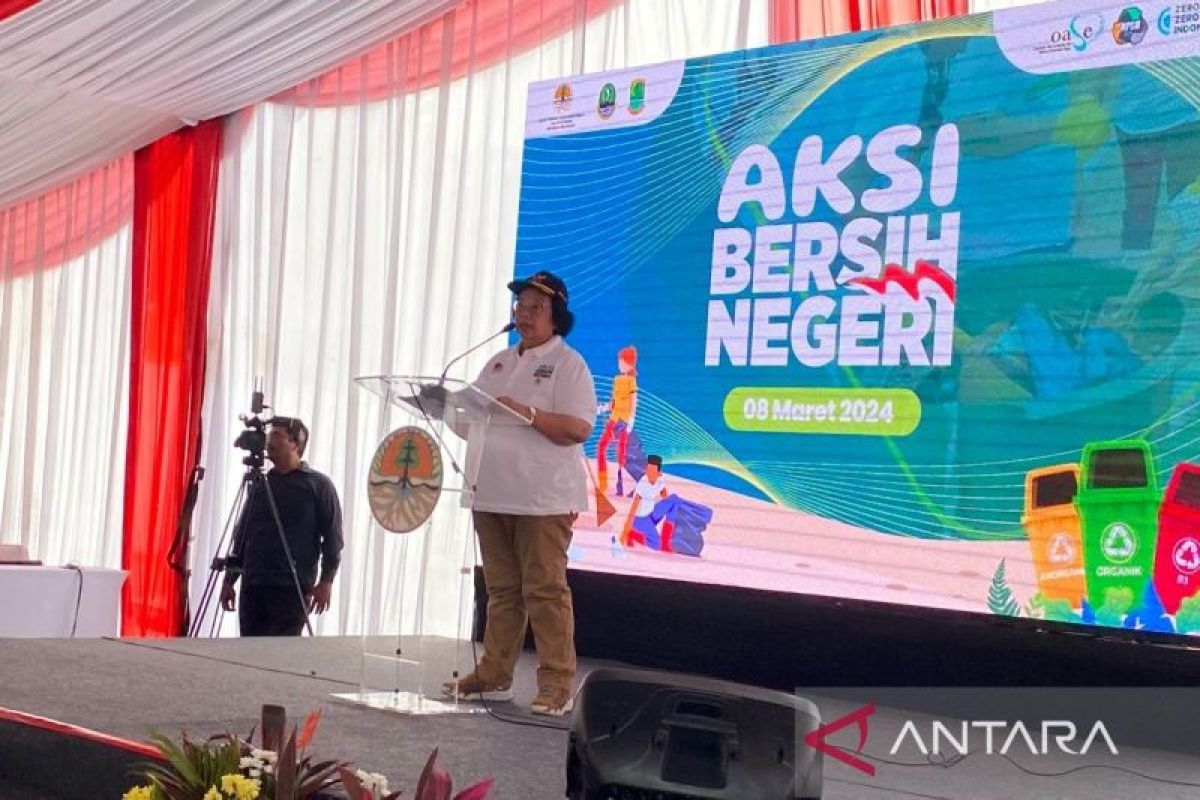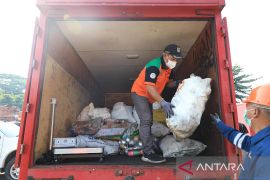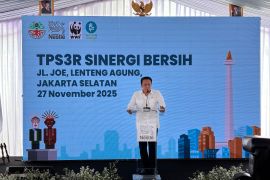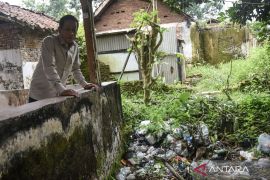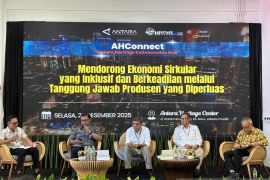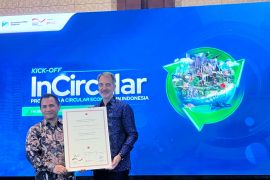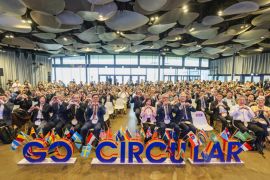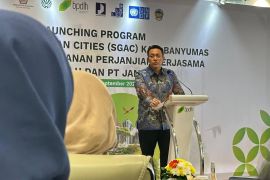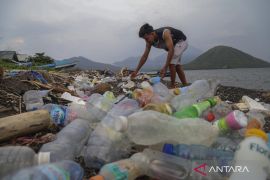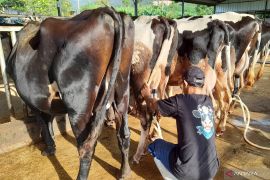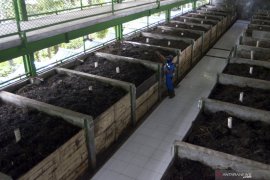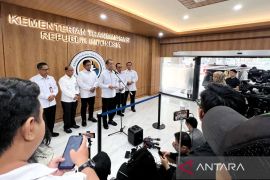In the "Clean Country Action" event held here on Friday, Bakar said data from the National Waste Management Information System (SIPSN) showed that the performance of national waste management in 2022 was recorded at 63.68 percent.
It comprised 14.26 percent of waste reduction and 49.42 percent of waste being handled.
Meanwhile, the remaining 36.32 percent of waste was not managed properly, as the linear approach was still applied, namely merely producing, consuming, and disposing.
"This pattern must be left (and changed) with the circular economy principle, namely regenerating the natural system, (making) design in waste management, and then taking products and materials that can be reduced, (and) then reuse and circulation," Bakar explained.
To this end, the minister deemed it necessary to reduce single-use items and redesign them into durable packaging.
In addition, Bakar underscored the importance of carrying out a production pattern that can be reused, recycled, easy to repair, refill, and composted.
The minister emphasized the need to take this step, as the use of plastic and paper waste in the recycling industry is still low, reaching only around 40-50 percent of the industry's needs.
Hence, Bakar encouraged the utilization of waste banks to increase the use of recycled waste. The number of waste banks currently reached 16 thousand in Indonesia.
"Hopefully, (the garbage bank) can be a facility that prepares recycled waste," she remarked.
Related news: OIKN targets recycling 60 percent of waste in Nusantara City
Related news: TWC provides waste sorting training for vendors at Prambanan Temple
Related news: Cooperatives key to circular economy through waste banks: Ministry
Translator: Prisca V, Kenzu
Editor: Azis Kurmala
Copyright © ANTARA 2024
